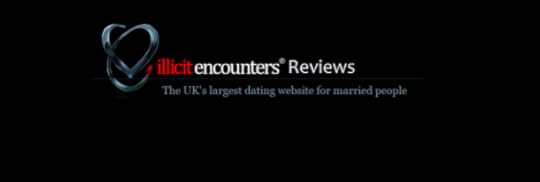elicit vs illicit. What’s the difference? Easily confused words (21-22)

Quick “takeaways”
Elicit and illicit do not mean the same thing at all. Elicit is a verb only**, illicit is solely an adjective.
Beware of accidentally using illicit as a verb when you want to talk about evoking a reaction or extracting information.
Correct: He used good actors who are capable of eliciting genuine sympathy from the audience.
Incorrect: It’s likely to X illicit a collective groan.
Beware of using elicit as an adjective.
Correct: The Grenadines, with their many uninhabited islets, are a transhipment point for illicit drugs from South America to the United States.
Incorrect: It was hard to imagine why his wife should believe that there were women just waiting to entice him into an X elicit liaison.
Self-test
Having warmed up with the above, you might like to try some verbal gymnastics.
A word is missing from these authentic (i.e. not made up by me) sentences. If you’re game, to complete the meaning choose one of the alternatives shown.
The detective involved was reprimanded for ______ false confessions. a) illiciting; b) eliciting.
Heavy drinking or ______ drug use make treatment ineffective. a) elicit; b) illicit.
That remark ______ friendly laughter from the audience. a) elicited; b) illicited.
It is a rare film that can ______ that response from me. a) illicit; b) elicit.
These are things that, like Greene’s ______ liaisons , remain to be forgiven. a) illicit; b) elicit.
(Answers at the end.)
If you got them all right, you probably know all you need to know about illicit vs. elicit.
If not, what follows may help you to avoid confusing them.
Why are they confused?
Simples! They sound identical, as their phonetic representation shows:
elicit /ɪˈlɪsɪt/
illicit /ɪˈlɪsɪt/
So, they are examples of what are called homophones: words that sound exactly the same but have different spellings and meanings.
A crucial distinction between them is that elicit is a verb. It can therefore have all the verb parts, i.e. elicits, eliciting, elicited.
Illicit is an adjective and has only the one form as an adjective. Its derivatives are illicitly and illicitness.
TIP: Because of the above, if you come across X illiciting, for example, or if you find yourself writing it, you will know that it is a mistake. (An automatic spellchecker would pick it up as a mistake in any case.)
TIP: Something illicit borders on being illegal, so remembering the ill– element in both may help. If you elicit a reaction, you evoke it, so remembering the e- prefix (meaning “out”) may help.
(If you enjoy this blog, and find it useful, there’s an easy way for you to find out when I blog again. Just sign up (in the right-hand column) and you’ll receive an email to tell you. “Simples!”, as the meerkats say. I shall be blogging regularly about issues of English usage, word histories, and writing tips. Enjoy!)
Meanings and origins
Meaning
The verb elicit means “to evoke or draw out (a reaction, answer, or fact) from someone”. The kinds of thing that you can elicit include reactions and responses; physical reactions such as applause, laughter, chuckles, giggles; and emotional reactions such as emotion, admiration, sympathy, and pity. You can also elicit information, confessions, and testimony.
The Yorkshire Gazette recorded how he “elicited unbounded applause, and sent his audience home delighted with their evening’s amusement”.
Subsequent staff letters to the college administration, inviting discussion of remaining issues, have not elicited a reply.
Illicit is an adjective, meaning “forbidden by law, rules, or custom”.
Things that are typically illicit include drugs, substances, liquor, opium, trade and trafficking, on the one hand, and liaisons, trysts, affairs, and sex, on the other.
Less easily influenced is the illicit trade in armaments around the globe.
South Africans don’t tend to dump their illicit sex lives in tacky red-light districts.
The connection of illicit with sex or romance was highlighted in the 1931 film Illicit, in which the heroine, played by Barbara Stanwyck, lives together with her boyfriend “out of wedlock”, and so the film must have been pretty racy for its time.
Origins
They may look at first glance as if they are related, but they come from two different Latin roots.
Elicit comes from the past participle of the Classical Latin ēlicĕre “to draw or entice (someone) out”.
According to the OED, it was first used in 1641.
Illicit comes from French illicite, which comes from the Latin adjective illicitus, a combination of the negative prefix il- and licitus, past participle of the impersonal verb licēre “to be allowed”. The same verb is the root of licence, licit, and leisure.
It was first used in English in 1606.
Its derivatives are illicitly and illictness.
How often are they confused?
Without substantial research, it’s impossible to give figures. However, a scan of Oxford English Corpus data suggests that perhaps illicit is more often wrongly used as a verb than elicit is as an adjective.
The following examples are typical of the “accidents that will occur in the best-regulated”… newspapers, journals, and even High Court transcripts:
The Prince of Wales and his charities have a growing property portfolio, but there is one notable building that is unlikely to X illicit a bid from the heir to the throne. Telegraph, 2011
X Elicitly gathering information is a step too far. Guardian, 2012
Raise it for debate in the pub and it’s likely to X illicit a collective groan, but in boardrooms and dressing rooms it has greater currency. Scotland on Sunday, 2005
…the cost is high and the prospects of any helpful information being X illicited by the independent analysis, remote. England and Wales High Court Decisions, 2003
…such confessions of diabolic sexual attack were merely excuses to cover up the evidence of masturbation or X elicit affairs. Folklore, 2003.
ANSWERS:
1. b); 2. b); 3. a); 4. b); 5. a).
** There is also an obsolete adjective elicit, defined by the OED as “Of an act: Evolved immediately from an active power or quality; opposed to imperate.”
Filed under: Advice for writers, Confusable words, Meaning of words Tagged: easily confused words








